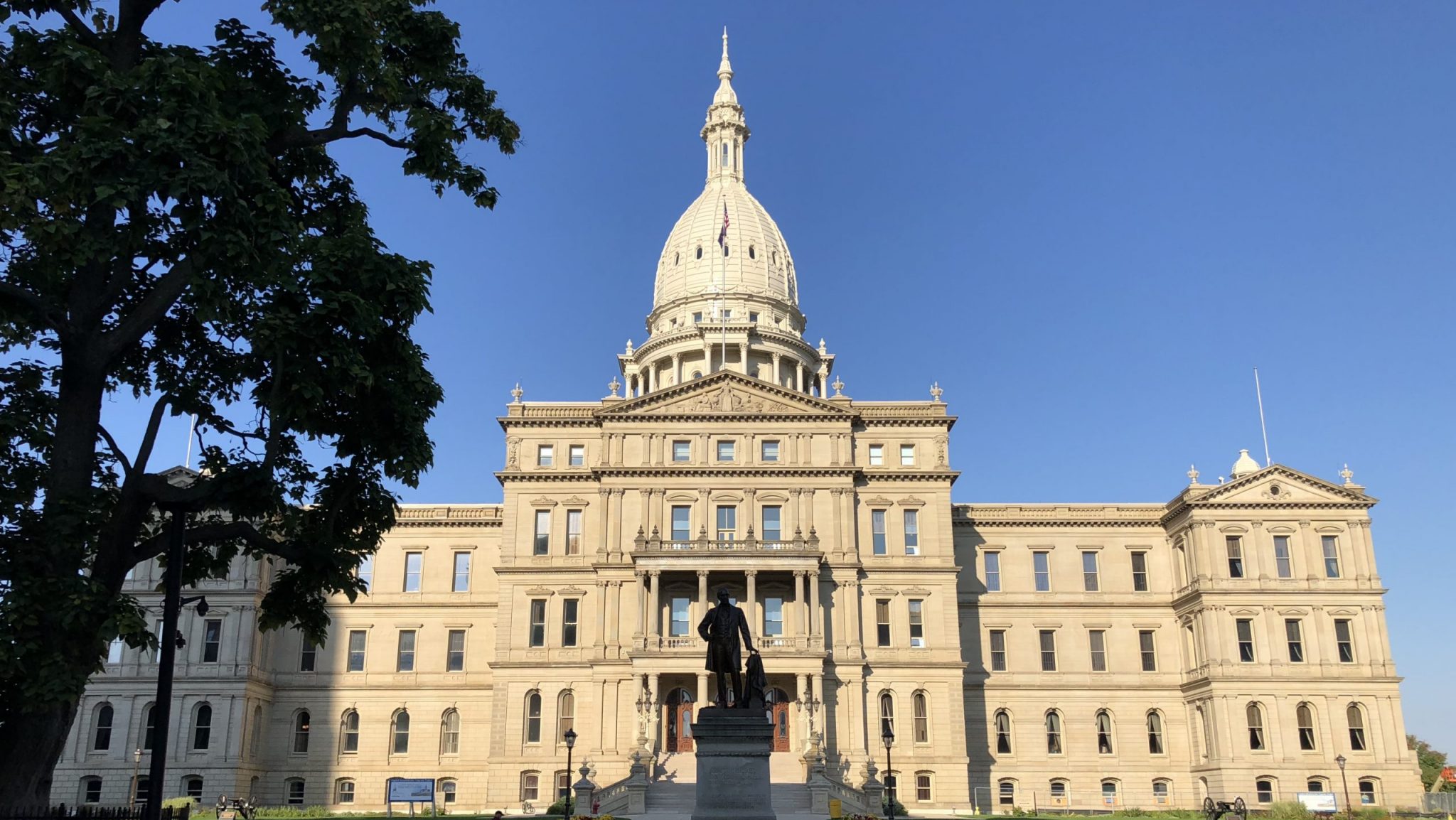Michigan unemployment agency director says state is attempting to recoup money from fraudulent claims
Michigan overpaid $8.5 billion during the first 14 months of the COVID-19 pandemic. Now there’s debate just how many of the claims were intentional acts to defraud.

Michigan State Capitol building.
Billions in fraudulent unemployment claims paid out during the initial phase of the COVID-19 pandemic was the subject of a joint House and Senate Oversight Committee Thursday.
According to an independent audit, of the $8.5 billion paid out fraudulently, some of it went to people impersonating others while the majority went to people using their own name to sign up for unemployment. It’s unclear if those people were attempting to defraud the system or just confused by their eligibility.
We still need to prosecute those who defrauded the agency and claw back as much taxpayer funding as possible. We also need to update and modernize UIA improve the experience for our customers and invest in new technology.” —Julia Dale, director of Michigan’s Unemployment Insurance Agency
Julia Dale is the new director of Michigan’s Unemployment Insurance Agency. She says the problems with the agency are multifaceted.
“We still need to prosecute those who defrauded the agency and claw back as much taxpayer funding as possible,” Dale says. “We also need to update and modernize UIA improve the experience for our customers and invest in new technology.”
Following a statewide lockdown, the UIA received 77 times the number of unemployment claims during the early stages of the pandemic. The agency disabled software that is used to prevent fraud to speed up the process of giving out benefits to people who lost their source of income.
Sen. Ed McBroom (R-Vulcan) says he was taken aback by the messaging coming from the department and took exception to Dale’s look-forward-not-backward approach.
“If we can’t get a straight-up humble eat crow response from the department when an independent audit, multiple independent audits now come out and say you really screwed up bad, it’s really difficult to believe that we’re setting a new tone and direction.”
Most of the money was given to people using their real name – the rest was given to imposters. Fifty-four people in Michigan have been charged with imposter fraud or pretending to be someone else in order to receive unemployment benefits. Late last year, Gov. Gretchen Whitmer signed an executive order stating the UIA’s fraud protection software should never be disabled.
Rep. Steven Johnson (R-Wayland) asserts that still makes everyone who received money when they should not have criminals even if it wasn’t intentional.
In a tense exchange in front of a joint legislative oversight committee, Johnson alleges the amount of fraudulent payouts was actually higher than what an audit found and pressed Dale on the matter. Johnson asked how many were intentional and Dale responded she didn’t have a specific number.
Trusted, accurate, up-to-date.
WDET strives to make our journalism accessible to everyone. As a public media institution, we maintain our journalistic integrity through independent support from readers like you. If you value WDET as your source of news, music and conversation, please make a gift today.

